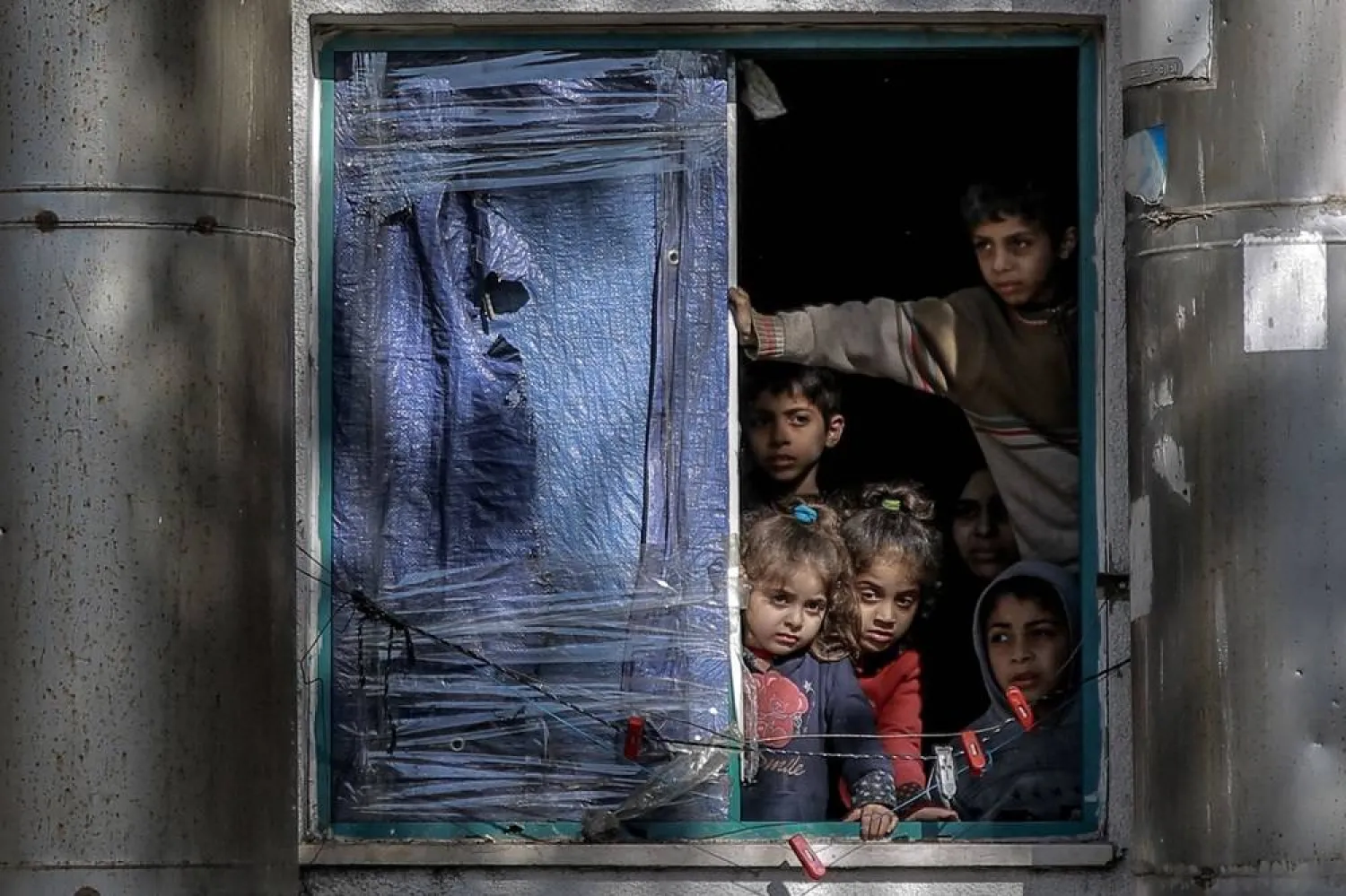Israel said on Friday it would send a delegation to Qatar for fresh talks on a ceasefire and hostage release in Gaza, keeping faint hopes for a truce alive despite rejecting a long-awaited counter-offer from Hamas.
Prime Minister Benjamin Netanyahu's office also said he had approved a plan for an assault on Rafah, the city on the southern edge of the Gaza Strip where more than half of the territory's 2.3 million residents are sheltering, though it gave no timeframe for such an attack.
Negotiators failed this week to reach a ceasefire agreement for the Gaza war in time for the Ramadan Muslim holy month. But Washington and Arab mediators are still determined to reach a deal to head off an Israeli assault on Rafah and let in humanitarian aid to stave off mass starvation.
The first ship bringing food aid by sea arrived off the Gaza coast on Friday morning, where an aid agency says it is building a temporary jetty to offload it.
Meanwhile, Israel has emphasized that in the absence of a ceasefire deal it is pressing on with war plans.
"Prime Minister Netanyahu has approved the plans for action in Rafah. The IDF (Israeli Defense Force) is preparing operationally and for the evacuation of the population," Netanyahu's office said in a brief statement.
"Regarding the hostages - Hamas's demands are still unrealistic. An Israeli delegation will leave for Doha after the security cabinet discusses Israel's position."
Even Israel's closest ally Washington has pleaded with it not to assault Rafah, arguing that this would cause a humanitarian catastrophe. Israel says it would evacuate residents first.
Hamas counter-offer
More than two weeks after receiving an Israeli-approved proposal for a truce, Hamas gave mediators on Thursday its first formal counter-proposal in more than a month. Like previous proposals from both sides, the offer, reviewed by Reuters on Friday, foresees dozens of Israeli hostages being freed in return for hundreds of Palestinians held in Israeli jails, during a weeks-long ceasefire that would let in aid.
It also calls for talks in a later stage on ending the war, seen as anathema to Israel which says it will negotiate only over a temporary truce.
Though Israel did not accept, its description of the terms as "still unrealistic" was notably milder than the language it used about the previous Hamas offer last month, which Netanyahu called "completely delusional" and "from another planet".
Sami Abu Zuhri, a senior Hamas official, told Reuters Israel's rejection showed that Netanyahu was "determined to pursue the aggression against our people and undermine all efforts exerted to reach a ceasefire agreement". It was up to Washington to push its ally to accept a ceasefire, he said.
Egyptian President Abdel Fattah al-Sisi, whose country hosted the main negotiations in recent weeks, said he was still working hard to reach a deal.
Aid by sea
The first vessel bringing aid by sea, the Open Arms, carrying 200 tons of food, could be seen in the distance off the beach of Gaza, after being towed from Cyprus. The charity World Central Kitchen (WCK) aims to deliver the aid on a temporary jetty.
If the new sea route is successful, it may help to ease the hunger crisis affecting Gaza, where hundreds of thousands of people face malnourishment and hospitals in the worst-stricken northern areas have reported children dying of starvation.
However, aid agencies have repeatedly said that plans to bring in aid by air and sea would be far from sufficient as long as most access by land is restricted.
The war began with an attack by Hamas fighters from Gaza who killed 1,200 people and seized 253 hostages in Israel on Oct. 7, according to Israeli tallies. Since then, an Israeli assault has killed more than 31,000 people and driven nearly the entire population of Gaza from their homes.
The United Nations says all of Gaza's 2.3 million people are suffering from a food crisis and a quarter of them are on the precipice of famine, especially in the north.
Israel, which has sealed off all land routes into Gaza apart from two crossings on the territory's southern edge, denies blame for hunger and says aid agencies should do a better job distributing food. The agencies say they need better access and security, both of which are the responsibility of Israeli forces who have blockaded the strip and stormed its cities.
The distribution of the limited aid that arrives has been chaotic and frequently violent.
In one of the worst reported incidents yet, Gaza health authorities said at least 21 people had been killed and 150 wounded at a queue for aid near Gaza City on Thursday night, blaming Israeli forces for shooting into the crowd.
Israel denied its troops were to blame and said Hamas fighters had opened fire. Reuters was not able to independently confirm either account in that part of Gaza.
Israel has also denied blame in past similar incidents at food distribution locations, including the deadliest so far, on Feb. 29, when more than 100 people were killed.
There are increasing signs of friction between Washington and its close ally Israel over the conduct of the war, which officials in President Joe Biden's administration say is being waged with too little care for Palestinian civilians.
US Senate Majority Leader Chuck Schumer, the highest-ranking Jewish elected official in the United States and a leader of Biden's Democratic Party, called on Thursday for Israelis to replace Netanyahu, whose hardline policies he said were wrecking Israel's international standing.
"Israel cannot survive if it becomes a pariah," Schumer said.
Netanyahu's Likud Party said his policies had widespread public support.
"Senator Schumer is expected to respect Israel's elected government and not undermine it," it said. "This is always true, and even more so in wartime."









